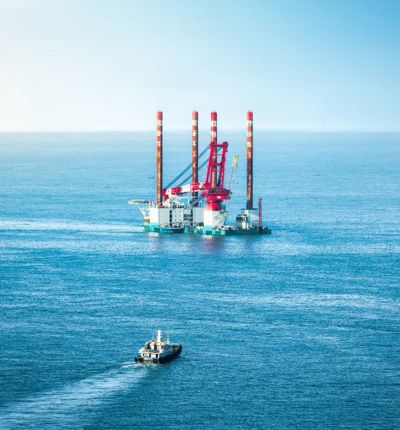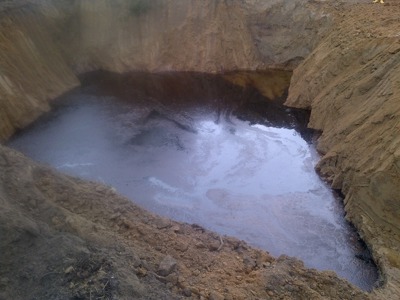
Seabed mining and the accountability gap
Katharina Theil and Melissa Rahbar from Leigh Day’s international department discuss the need for a strong accountability regime for damage caused by seabed mining in light of the potential risks to the marine environment.
Posted on 09 January 2024
On 28 July 2023, the 36 member countries of the International Seabed Authority (ISA) Council decided that they were not ready to publish rules that would allow companies to mine the international seabed.
The Council announced that they would likely take at least another two years to finalise the rules that could allow mining to begin, with more discussions on the potential environmental impact of seabed mining to be had in the meantime. This move came after an outcry and calls for a ‘precautionary pause’ from a variety of actors, including environmental activists, indigenous communities, companies and states, due to the uncertain impacts of this practice on the marine environment.
What is seabed mining?
Seabed mining is the process of extracting minerals and metals by scraping and pumping the seabed in the deep sea. The international seabed, and particularly the Clarion-Clipperton Zone between Hawaii and Mexico, contains vast quantities of rare and valuable materials, including nickel, copper and cobalt, which are important components of rechargeable batteries for electric vehicles.
Is seabed mining bad?
Supporters of seabed mining believe that obtaining these materials in large quantities is key for facilitating the energy transition, arguing that it may reduce the need for mining these materials on land which has been linked to significant environmental and human rights abuses.
Opponents, however, say that mining for these materials could significantly disturb the fragile marine environment. Scientists have recently discovered that the biodiversity of the seabed is far larger than previously known and that the mining of this area is likely to destroy the habitat of a variety of creatures. Additionally, scientists have raised that the practice could have negative climate change impacts, as plants on the seabed store carbon, which could be released if the plants are damaged. Ultimately, the exact consequences of seabed mining for the marine environment are still unknown.
Nevertheless, some states and companies are keen to start mining, first among them being the Nauru sponsored ‘The Metals Company’.
What happens when damage occurs?
The UN Convention of the Law of the Sea (UNCLOS) described the international seabed as “the common heritage of mankind”, which must be protected for the benefit of mankind as a whole. UNCLOS contains several provisions dealing with seabed mining that are to be read against this background. For instance, the Convention requires a company mining the international seabed to be sponsored by a state (which can be different from the state where the company’s main office is based), which is responsible for ensuring that the company complies with the Convention and other regulations introduced by the ISA. The ISA’s role is to oversee the system for seabed mining by regulating and granting contracts to explore for and mine seabed resources.
An Advisory Opinion of the Seabed Disputes Chamber of the International Tribunal for the Law of the Sea (the Opinion) from 2011 discusses the role of the ISA and sponsoring states in more detail. In brief, sponsoring states must exercise “due diligence” in overseeing the conduct of sponsored companies by adopting and enforcing new laws, regulations and administrative measures to ensure that the provisions of UNCLOS are complied with.
Though it is up to states to decide what specific measures to adopt, according to the Opinion, sponsoring states could be held accountable for damage caused by sponsored companies if states do not introduce and enforce adequate laws and regulations, and damage is caused as a result. The requirements of these laws and regulations must be at least as strict as those included in UNCLOS and introduced by the ISA. Only if adequate laws are adopted and enforced are states explicitly exempt from liability under UNCLOS. Nevertheless, according to the Opinion, it remains the sponsoring states’ obligation to ensure that quick and adequate compensation is available for damage caused by pollution of the marine environment.
In relation to potential claimants, the Opinion notes that claims for damages might be brought by states that suffered some economic or environmental harm resulting from damage to the international seabed which ends up affecting their territory or resources (such as damage to fish stocks in one state’s national waters). In addition, the Opinion supposes that “the Authority, entities engaged in deep seabed mining, other users of the sea, and coastal States” could be potential claimants of compensation (though it notes that UNCLOS and the relevant regulations are silent on this). It seems that such claims would need to be brought before the International Tribunal for the Law of the Sea (ITLOS). No consideration appears to have been given to the potential need for individual claimants seeking compensation for damage to their local environment.
Is this enough to ensure accountability when things go wrong?
While UNCLOS set out important guidelines for holding states and companies accountable for potential damage caused by seabed mining, some key issues are left unaddressed.
The framework as it currently still stands only foresees liability when companies engaged in seabed mining violate provisions of UNCLOS or other regulations yet to be introduced by the ISA (with any additional, more stringent domestic rules on liability being left up to the discretion of sponsoring states). However, up-to-date scientific opinion suggests that damage to the marine ecosystem, of uncertain scale, may often be an inevitable consequence of seabed mining, even when nothing ‘goes wrong’. This raises the question of who should carry the responsibility when damage occurs, but the (current) rules have been complied with. Whilst it might be argued that damage was caused lawfully, it would seem unjust if coastal communities and other users of the sea were made to carry those known risks.
In addition, there is no specific mechanism in place or envisaged to obtain compensation for individuals harmed by seabed mining. The ability to access such compensation is likely to be particularly important for indigenous communities in the Pacific, who rely on the marine world for their food security, livelihoods and religious and cultural practices.
While the Chamber did anticipate the possibility of states suing for damage caused to their territory or to nature itself before ITLOS, which may ultimately benefit affected individuals, this is far from providing a mechanism for ensuring adequate compensation for harm. Moreover, in practice, it is rare for states to take international legal action against another state or a multinational company and, in any case, this is typically an extremely drawn-out process. In particular, where damage is done to the local environment of a marginalised community, it may be unlikely for a state to take action on their behalf.
All forms of seabed mining are likely to be extremely disruptive to the marine environment and there are likely to be various companies active in similar geographical areas of the seabed whose operations are likely to have a cumulative impact; therefore, it may not always be possible to assign blame for damage done to one particular operation. It is essential that this issue is carefully considered by the ISA when drafting additional rules on liability.
Finally, the ability of the ISA to exercise effective oversight over states and companies has already been questioned as a result of recent events. During small-scale tests of mining technology in 2022, ‘The Metals Company’ caused a 72,000 litres slurry spill in the Pacific. The ISA concluded that the company had failed to follow its own risk management procedures but, despite this, the Authority determined that the company had not breached the ISA’s rules substantially and therefore bore no liability for any damage caused. Once larger scale mining starts, the ISA should ensure that companies cannot get away with flouting risk management procedures, as this could cause significant damage to the entire marine ecosystem.
Where does this leave us?
Whatever happens over the next two years and once rules have been finalised, it is clear that seabed mining is far from being without risks for the marine ecosystems, animals and coastal populations.
If rules on liability are left largely to the discretion of individual states, there is a risk that the level of accountability will strongly vary between states, potentially weakening the protection of affected communities. As a result, it is paramount that the practice is only given the go ahead once strong regulations and clear rules on liability for damage, including adequate compensation for affected individuals and clarification of jurisdictional competences, have been put in place both at the international and domestic level.

Katharina Theil
Katharina is a senior associate solicitor in the international and group litigation department.

High Court rules Nigerian communities can bring landmark human rights claims against Shell for oil pollution
The High Court has ruled that 13,000 Nigerian fishermen and farmers at the centre of a major oil pollution case against Shell can bring claims for breaches of their right to a clean environment under Nigerian constitutional law. If the case succeeds at trial, it will be the first time in legal history that a UK multinational will have been found to have breached a communities’ right to a clean environment.

